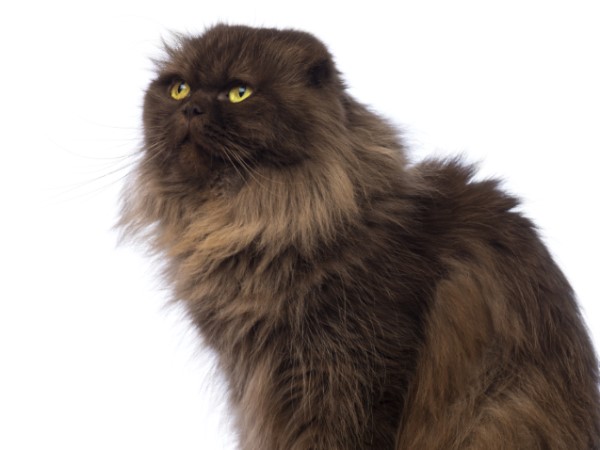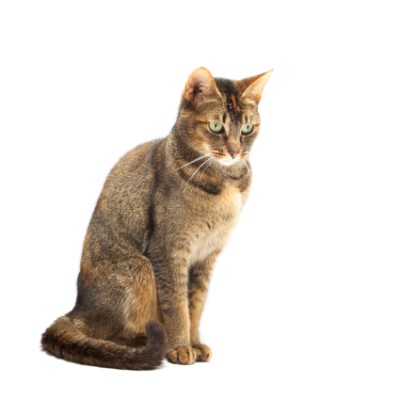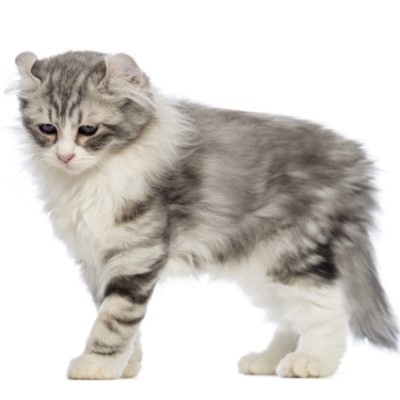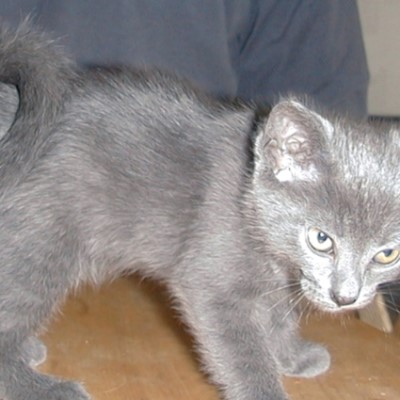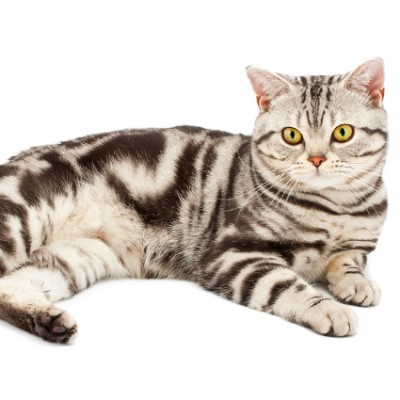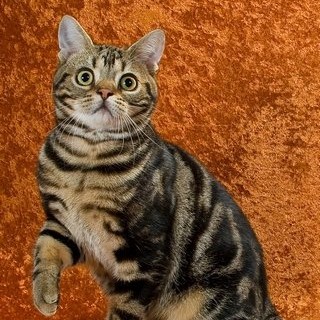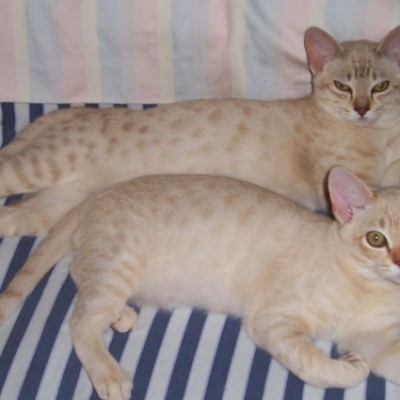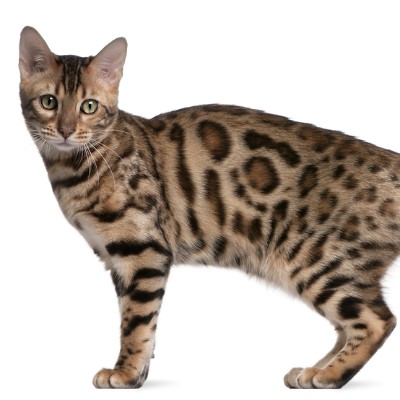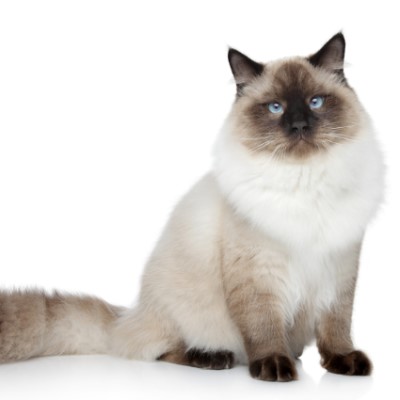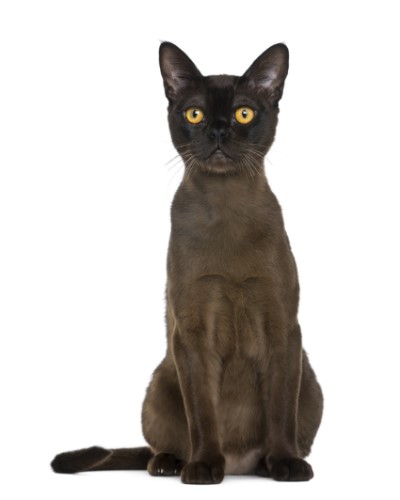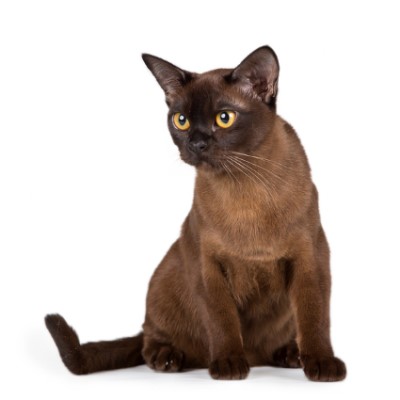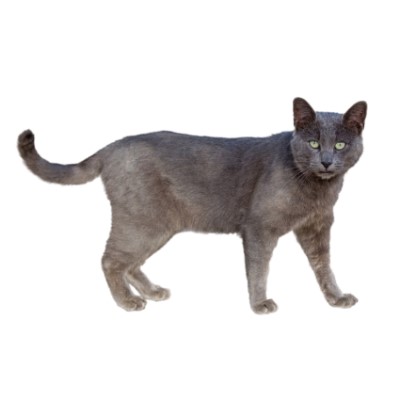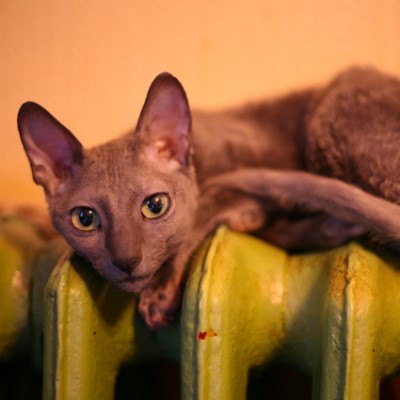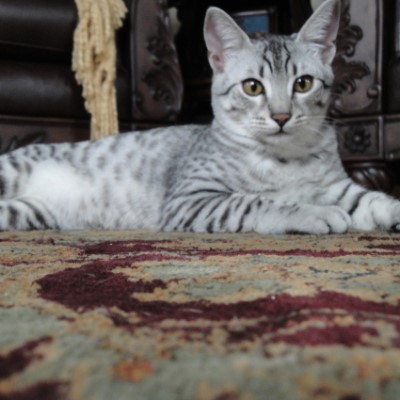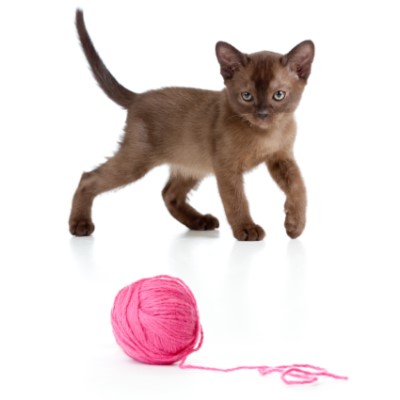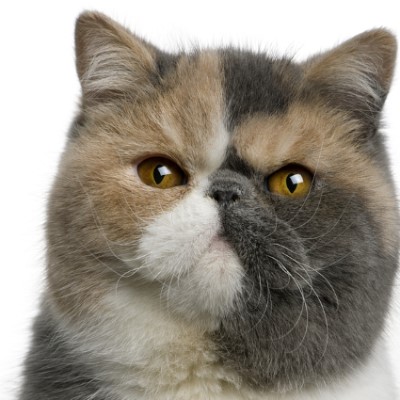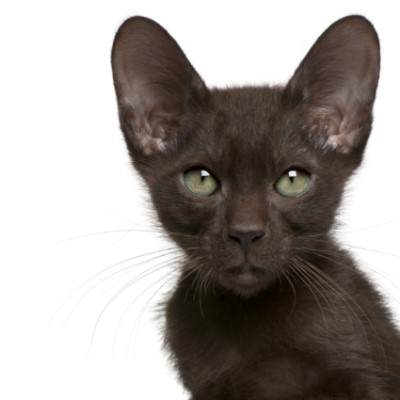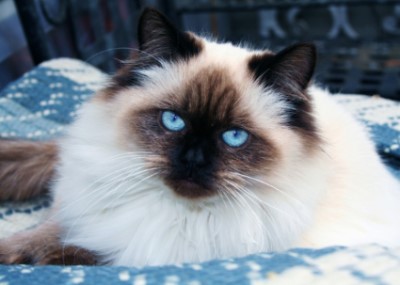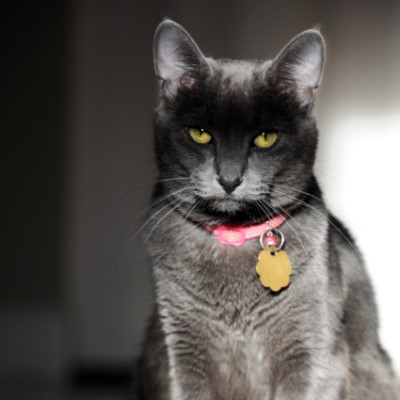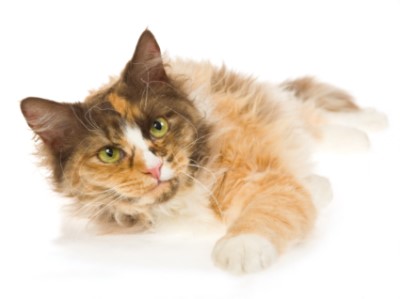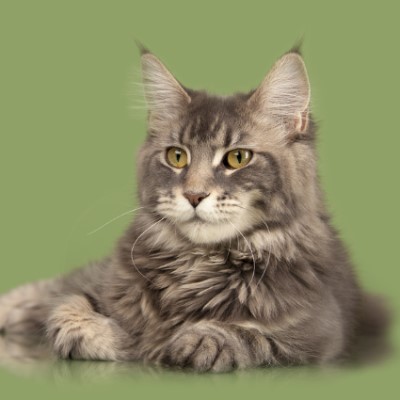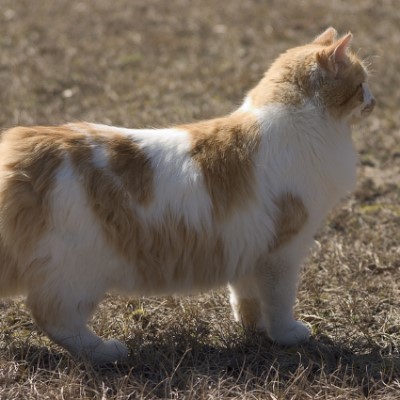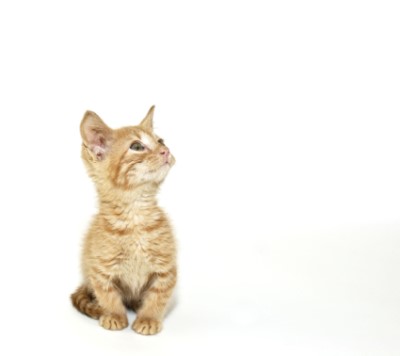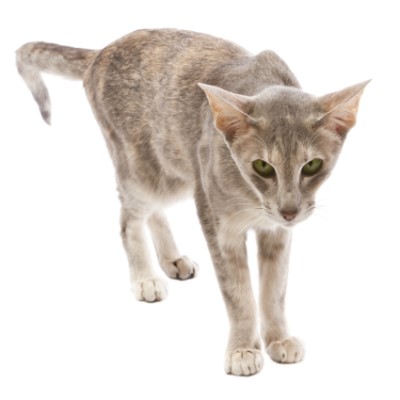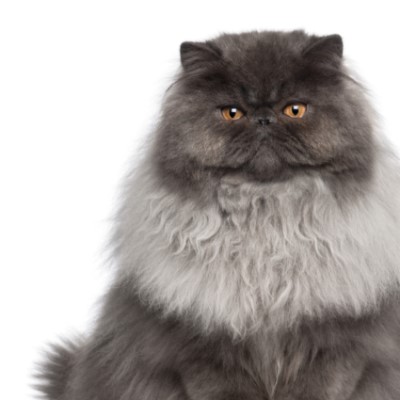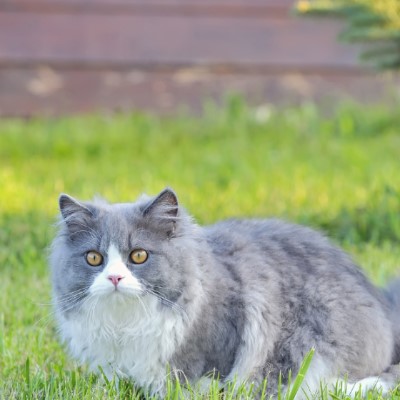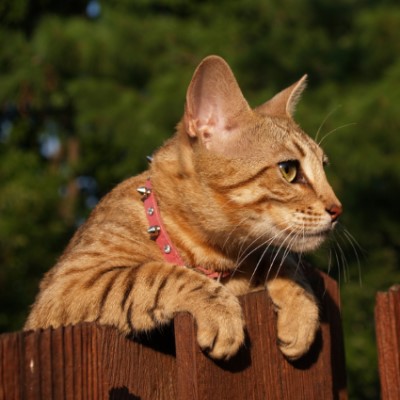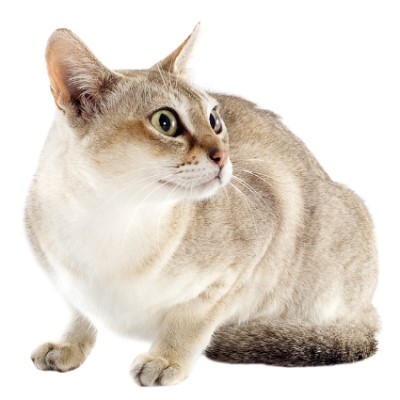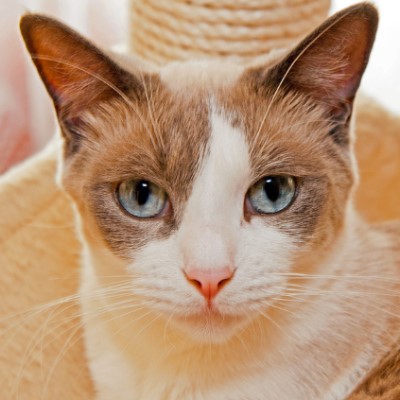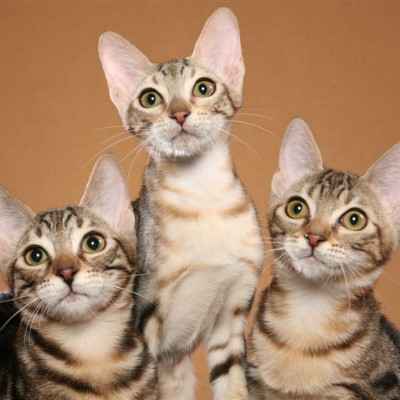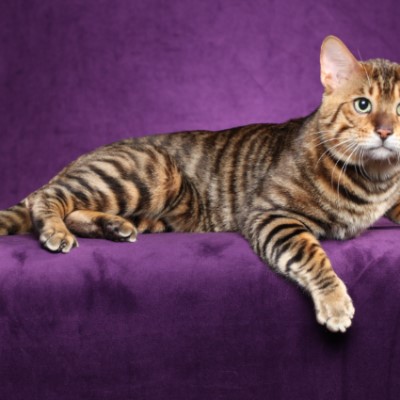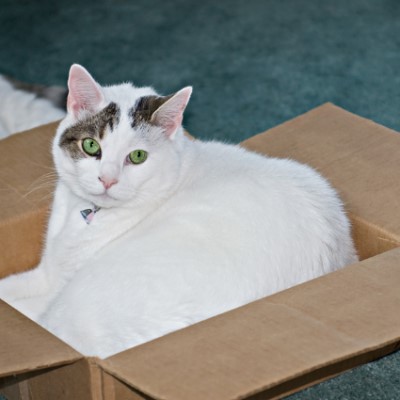Common Reasons for Surrender
To date, there is no record of a Highlander cat being surrendered to a rescue or to a shelter. Reputable breeders generally do extensive pre-screening before selling a Highlander cat and include a stipulation in the purchase contract that the owner must contact the breeder if he is no longer able to care for the cat. The breeder will then help the owner find his Highlander a new home.
Pros
An ideal family pet, Highlander cats are loving, entertaining, and loyal. Most generally get along with other cats and dogs. While not clingy like some breeds, Highlanders still want to spend time with their humans even if it’s just sitting on their lap. They generally adapt quickly, taking whatever may come their way with without stress. Most Highlanders enjoy a good game of fetch and communicate through a “chirp-like meow.”
Cons
Adopting any pet requires a financial commitment. A Highlander must have an annual exam and booster shots. In addition to veterinary expenses, you must pay for food, toys, and litter. You must also consider what you will do if you go on vacation: Will you take your Highlander cat with you? Or can you afford the expense of a pet sitter or a pet hotel? Moving also becomes complicated with a pet, especially if you’re renting, as not all rentals are pet-friendly. Are you willing to have few options for accommodation? Plans must also be made as to who will take care of your Highlander if you become incapacitated due to illness or you pass away.
Diet
Some Highlanders are picky and will even turn their noses up at their favorite foods every now and then. Provide your Highlander with a high quality, high protein, grain-free food. Wellness Core and Taste of the Wild are two popular, healthy options many breeders use for their Highlanders. Many people prefer supplementing a high quality dry food with a nutritious canned food, such as Royal Canin, or with a raw meat diet.
Highlanders enjoy healthy treats given in moderation. PureBites, which are soft liver treats, are popular and healthy. You may also want to make your own liver treats: Boil a piece of chicken liver and drain the water. After mashing the chicken liver, separate into small, bite-sized portions and put in the freezer until you’re ready to use.
Exercise
A well-exercised Highlander cat, particularly right before bedtime, means a peaceful night’s sleep for you. Highlanders love to play and need between a half an hour and an hour of exercise each day, which you can break into separate play sessions. Make sure you play with your cat for at last 15 minutes before bed, or expect a restless night for both of you.
Possible Health Issues
An overall hardy breed, the Highlander has curled ears, which require special attention. Keep an eye on your Highlander’s ears to ensure they are clean. You should also clean them at least once a week, using a small piece of soft cotton and ear cleaner, which you can typically purchase at a pet store.
Litter
Cat litter really depends on your and your Highlander’s preferences. Some Highlander breeders, however, recommend Feline Pine. An all-natural litter, Feline Pine has a pine scent, clumps, and is an economical option.
Grooming
Highlander cats either have long or short hair, both of which require minimal grooming. Although the Highlander does not need brushing, she will enjoy a soft-wired slicker brush at least once every two months. Most Highlanders love water, making baths potentially fun for them. Although baths and brushing are not a requirement for Highlander care, they provide a good bonding experience in an activity the cat enjoys.
Training
A liver treat will motivate your Highlander to learn whatever you want to teach him. Highlander cats are generally very easy to train, especially when rewarded with a treat. You can teach your cat basic commands such as sit and stay. Or, you can really give her mind and body a workout and teach her how to stand on her hind legs or even jump through hoops. Your Highlander can learn almost anything you decide to teach her. Highlanders also like a good mental challenge. Try putting a liver treat under an empty shoebox and watch your cat figure out how to move the shoebox to earn her treat.
Entertainment
Highlanders instinctively know how to play fetch. Just throw a toy mouse with a bell, a cat nip toy, or a small ball, and your cat will happily run after it and bring it back to you. Most also enjoy chasing a laser light, which can be as much entertainment for you as it is for your Highlander. Some Highlander cats, when not getting enough attention from their humans, may take drastic measures to entertain themselves, going as far as jumping into a shower and frightening their unsuspecting family member.
We want to thank Forever Kittens Cattery for help with this profile. Photos courtesy of Melissa M. Witmer.
